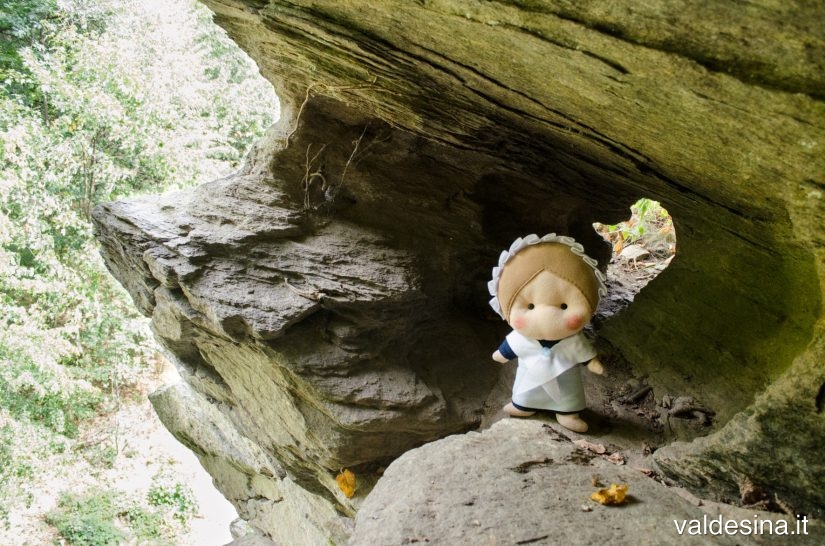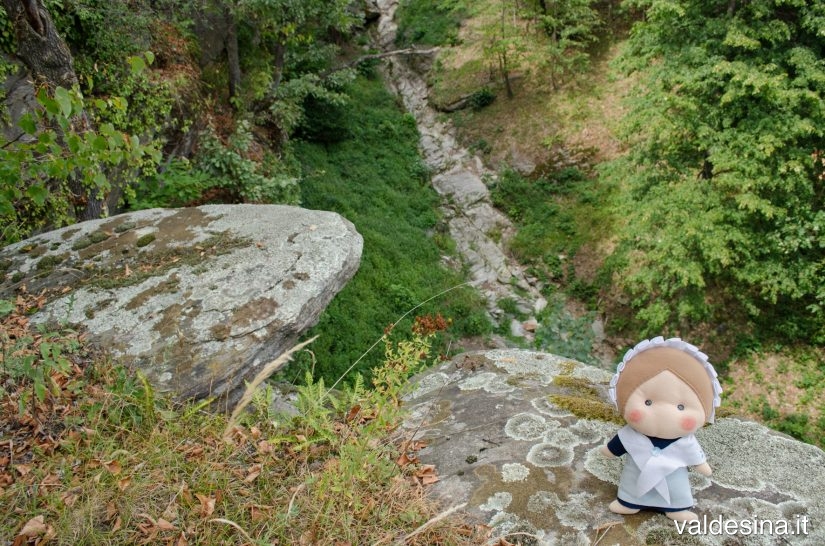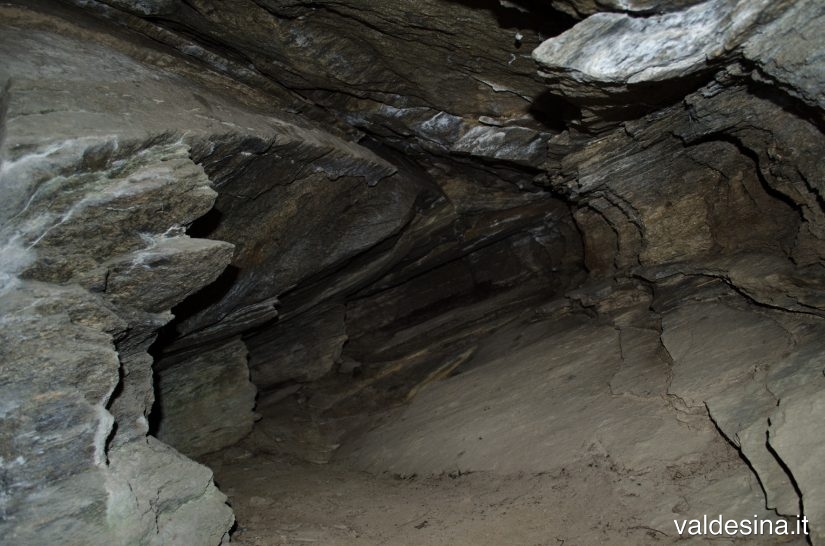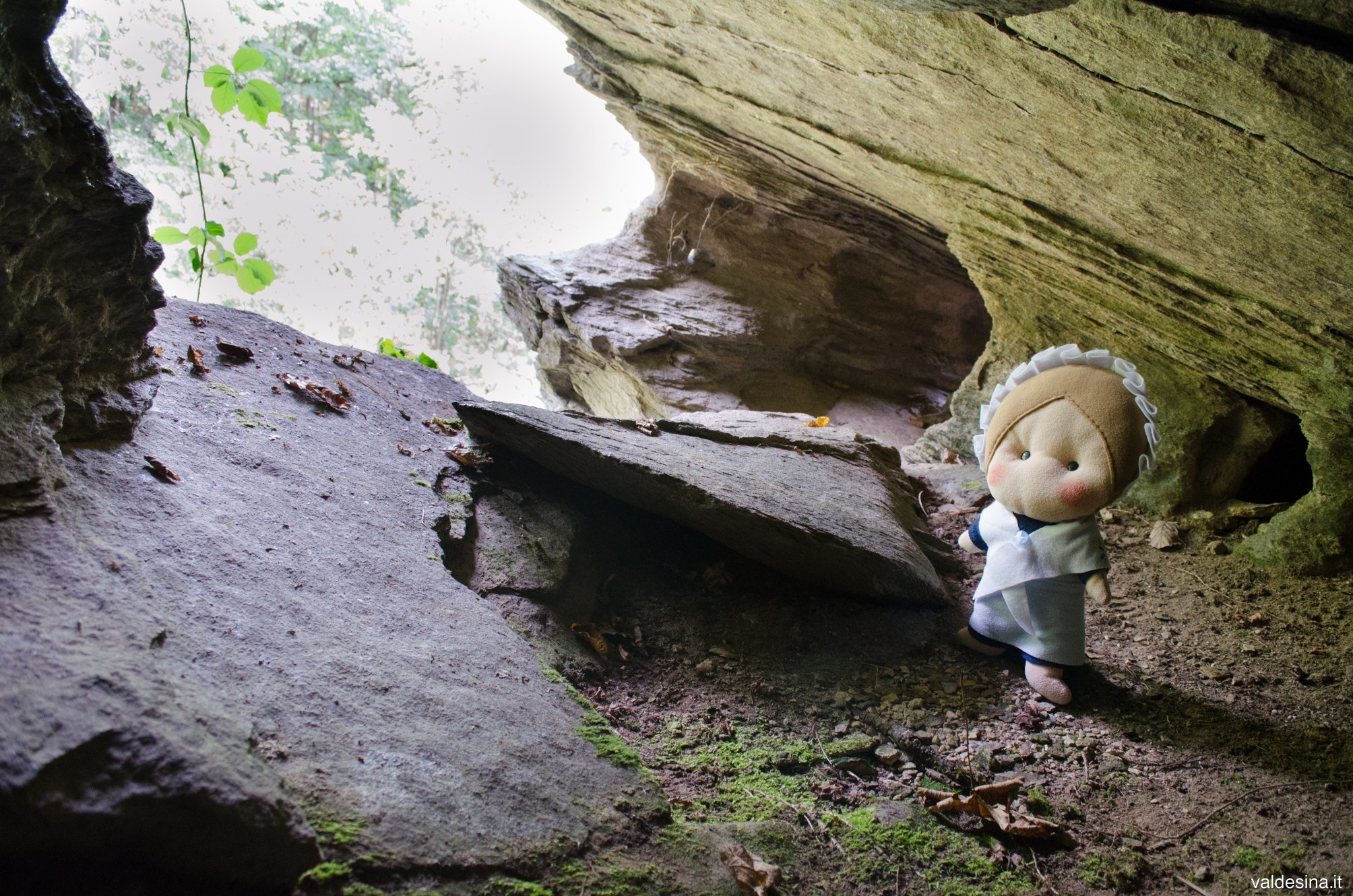Hello kids!
Today we’re back in Rorà, in Pellice Valley, since I’d like to talk about some legendary creatures – known as “fairies” – coming from these areas. You oughta know that there is a small natural cave called “Pertus d’le Fantine” (that is, “the fairies’ hole”) where it was once believed that fairies living in the nearby “Roque of the Fantine” (“fairy rock”) used to hide.
I immediately warn you that it is necessary to be guided by an experienced climbing expert and equipped with the right equipment to visit it so do not go there until you are grown up!

There is no precise legend related to this place, except that at night fairies used to jump out of the cave and used to return back at sunrise… All of the fairies from Waldensian Valleys are night creatures, living in rocky ravines; the origin of this belief dates back to the Neolithic period, when the area was inhabited by the Ligurians, who practiced fertility cults linked to the moon. Do you remember what fairies used to hang out the laundry at moonlight? Come on, of course you know! The ones from Barmascura, not that far from here!
In ancient legends there is also the theme of the moon-lit string… just the same thing that gave name to Roccha Filera of Angrogna: have you ever wondered where does the expression “hanging on a wire” come from? Other people of the past thought that the lives of men were dependent on a thread guarded by female gods… For Greeks they were the Moire, for Norths they were the Norns and Romans had the Parche; just focus on the fact that Romans used the word “fatum” to singular to indicate destiny, but in order to express the destiny assigned to each of us they used the plural which is… “fata” (fairy)!

Someone called fairies as “mountain mermaids”: incomprehensible creatures, generally charitable, ready to help mountaineers in difficulty, teaching techniques for milk processing (at Barma d’Aout) or donating treasures (on Vandalino). They just ask for respect, and when their secrets are revealed, they avenge without mercy, by often triggering the power of water, another element which they are often associated to.
A recurring theme in the legends of these ancient alpine divinities is the departure of fairies: in Cournilhoun, Pramollo and elsewhere, betrayed fairies leave forever with their mysteries and their wealth.

Ancient people from Northern Europe believed that they should not disturb the spirits that lived in the rocks, creatures that were already there before the arrival of human beings and that they would never leave… In areas around Cuneo, not too far from Pellice Valley but of strong Catholic tradition, the sacred places of fairies have become shrines dedicated to Virgin Mary.
Some fairy tales of the Valleys have been enriched with elements and made fairy tales like “The Fairy and the Lice” or “The Fairy Snake” but it seems that somehow, round here no-one will ever forget them!
Do you want to read the tale in Italian ?
